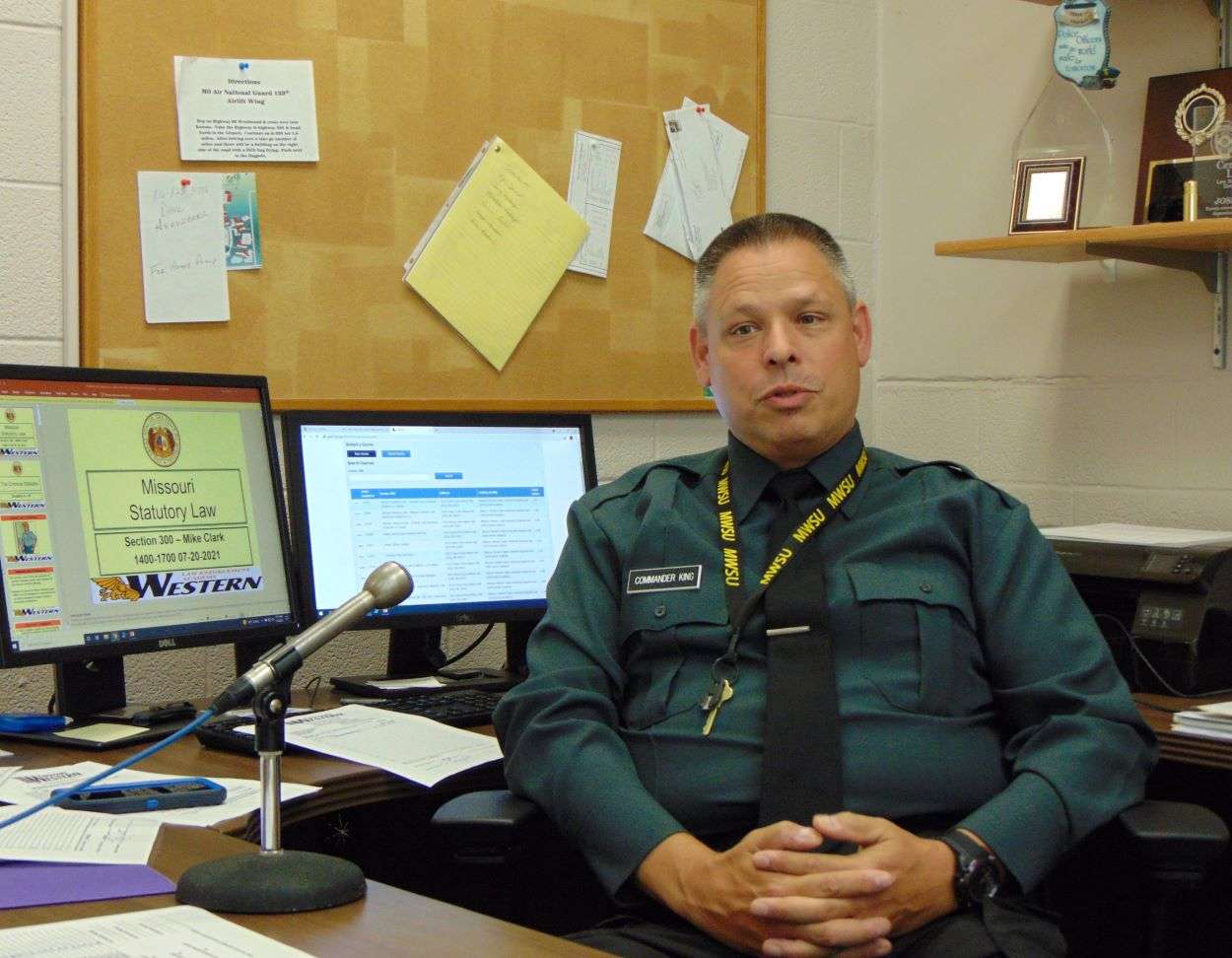
By BRENT MARTIN
St. Joseph Post
Training for future and current law enforcement officers has had to change in the post-George Floyd world.
Commander Joseph King with the Law Enforcement Academy at Missouri Western State University says officers are taught to respond to potential emergency situations and ignore suspicions the suspect might be faking it.
“The first duty and obligation we have is life preservation safety and then we worry about criminal investigations,” King tells KFEQ/St. Joseph Post. “And if you can prioritize that in your mind, you will always deal with the potential emergency first. And then when that person is either feigning or faking an illness, you respond appropriately, based on what that is.”
Floyd, a black man, died after a white Minneapolis police officer refused to remove his knee from his neck even though Floyd said he couldn’t breathe. Eighteen-year police veteran Derek Chauvin has been sentenced to 22-and-a-half years in prison for the murder of Floyd. Three other former Minneapolis police officers will stand trail on charges of aiding and abetting in Floyd’s murder.
The death of Floyd is one of a handful of high-profile in-custody deaths that spawned the Black Lives Matter movement and calls to defund the police.
King says the new cadets have adapted to the new world of scrutiny better than might be expected and better than many veterans, because they have grown up in a world of cameras and cell phones. Although King points out he began his career in wake of the beating of Rodney King by four Los Angeles police officers, perhaps the first beating of an African American suspect that captured nationwide interest and spawned widespread riots.
King says cadets are taught that person in their custody is their responsibility and they must always respond to a potential medical emergency, no matter the circumstances.
“But if you always respond to verify that first, rarely will it serve your wrong, and rarely will you have a community that is angry or frustrated, because of your response,” according to King.
King says he discusses the George Floyd case with cadets, pointing out that though a suspect might be breathing, he might not be getting adequate oxygen. Floyd died after the officer placed a knee on his neck for more than nine minutes, cutting off his air flow.
The officer continued to restrain Floyd even after Floyd dried out that he couldn’t breathe.
King adds cadets also need to know the public is watching, often with a cell phone in hand.
“What we’re trying to preach here, on camera and off camera, is about professionalism and ethical performance,” King says. “If you perform right and you always do it right every time, you’re very confident when you go to court. You tell people you did it this way and this is why.”
King says he also teaches cadets to block out the political rhetoric that has spawned the “defund the police” movement. He says they are taught to focus on serving the public, not taking the bait of political opponents.








